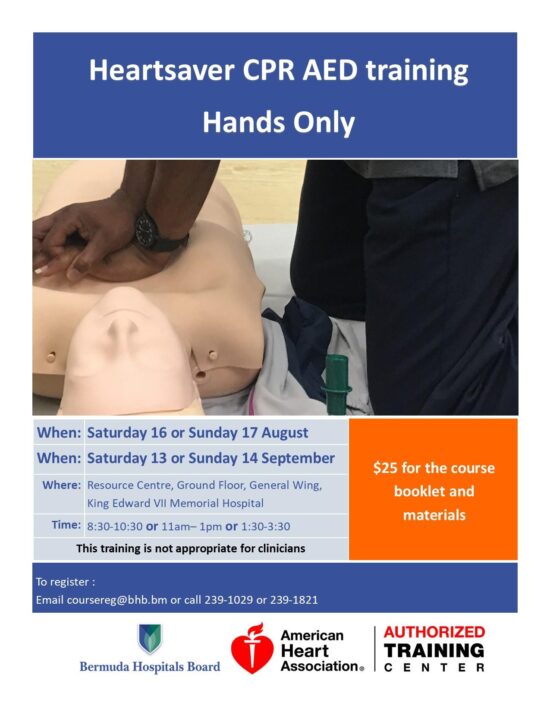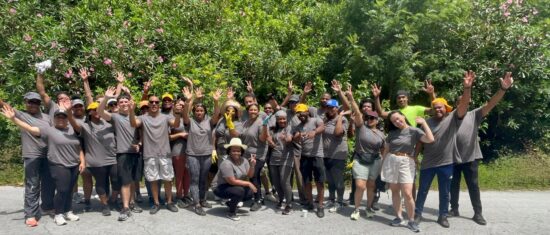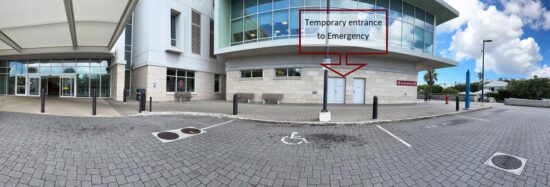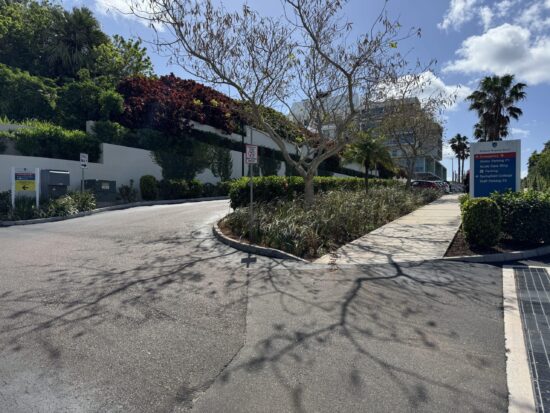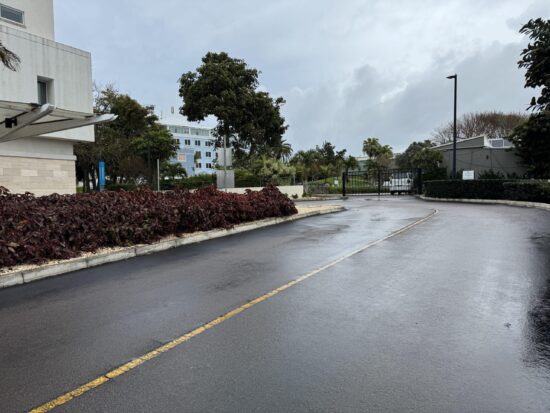BHB offers CPR training to the public
Wednesday 9 July 2025: Bermuda Hospitals Board (BHB) is offering cardiopulmonary resuscitation (CPR) courses for the public. BHB is an international training centre of the American Heart Association (AHA). All CPR courses follow AHA guidelines and standards.
Trainer for this course, nurse Kelly Pitcher comments: “Cardiac arrest can happen anywhere, and the victim could be someone you know and love. More lives can be saved if more people know CPR and how to use an automated external defibrillator, commonly called an AED.
“We’re pleased to support the American Heart Association and its important mission to increase survival from cardiac arrest. We’re asking all members within our community to learn the lifesaving skills of Hands-Only CPR.”
BHB will offer the Heartsaver CPR AED course for $25 (cost of the booklet and materials). Training takes approximately two hours and is done to music. Stretchers will be made available for those participants unable to kneel on the floor.
Registering for the courses
Please note that this course is not appropriate for clinicians.
Heartsaver CPR AED Three sessions will be offered each day between 8:30am and 3:30pm. Chose only one.
| Saturday 16 August | Saturday 13 September |
| Sunday 17 August | Sunday 14 September |
Heartsaver CPR AED
| Day | Session 1 | Session 2 | Session 3 |
| Saturday | 8:30-10:30 | 11:00-1:00 | 1:30-3:30 |
| Sunday | 8:30-10:30 | 11:00-1:00 | 1:30-3:30 |
To register call 239-1821 or email coursereg@bhb.bm
Please include the time and date you would like to attend.
-ends-

